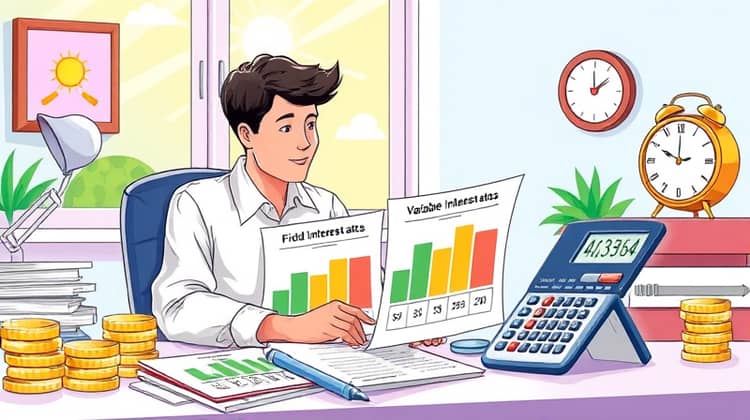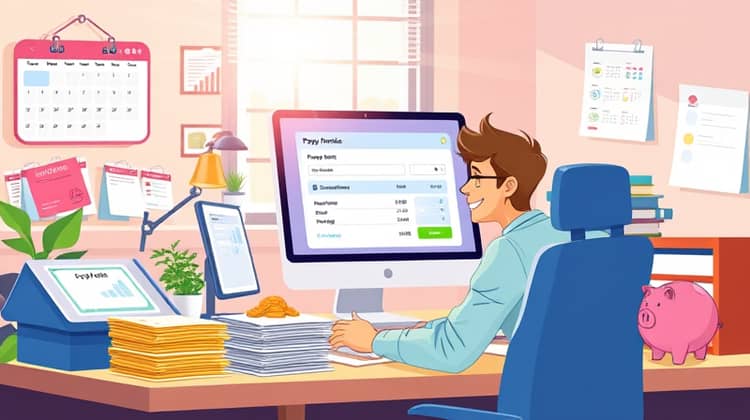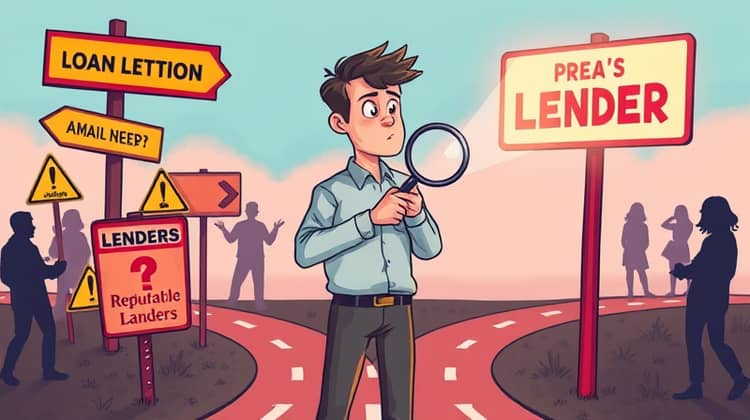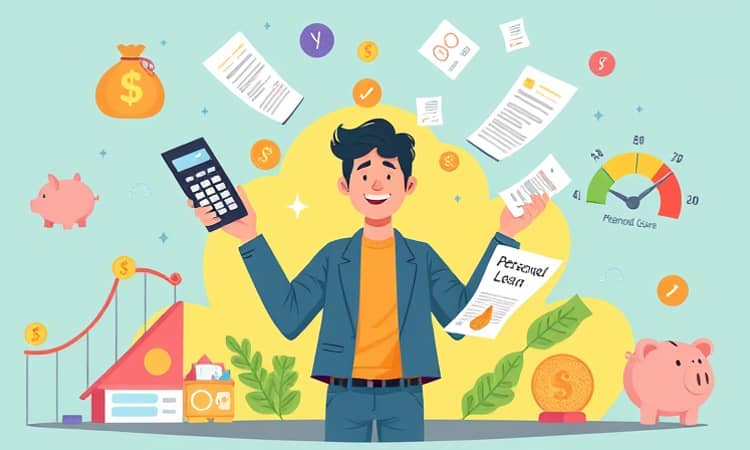Taking out a personal loan can be a beneficial way to manage expenses, consolidate debt, or finance a significant purchase. However, if not managed properly, it can lead to financial struggle and loan default. Understanding the essential aspects of borrowing and strategies to avoid default is crucial for financial health.
In this article, we will explore practical steps to help you avoid personal loan default, ensuring that you stay on top of your finances and maintain a healthy credit score.
1. Understand Your Loan Terms

The first step in avoiding default is to have a clear understanding of your loan terms. Know the interest rate, repayment period, and any additional fees that may be associated with your loan. This knowledge will empower you to make informed decisions and avoid falling into financial traps.
For instance, knowing whether your loan has a fixed or variable interest rate can significantly affect your planning. Fixed rates remain constant, while variable rates may increase, impacting your monthly payments.
- Interest rate: fixed vs. variable
- Repayment period and its implications
- Late fees and penalties for non-payment
- Prepayment options and potential charges
Once you have it all laid out, create a summary that you can refer to periodically. This will keep the terms fresh in your mind and assist you in making timely payments.
2. Budget Wisely

Creating and adhering to a budget is instrumental in managing your finances effectively. A well-structured budget helps you allocate funds toward your loan payments without compromising your essential expenses.
Consider using budgeting apps or spreadsheets to track your income and expenditures. This visibility will allow you to adjust and ensure that you have sufficient funds set aside for your monthly loan payments.
- List all sources of income
- Detail fixed and variable expenses
- Allocate funds specifically for loan repayments
- Regularly review and adjust your budget as necessary
3. Communicate with Your Lender

Maintaining open lines of communication with your lender can be vital in times of financial difficulty. If you anticipate trouble making a payment, inform your lender immediately. They may offer adjustments or solutions such as deferment or a modified payment plan.
Being proactive shows responsibility and can often lead to favorable outcomes, potentially avoiding more severe consequences like default or negative impacts on your credit score.
4. Consider Loan Refinancing

If you're having consistent troubles with your current loan terms, refinancing may be a viable option. This process can lower your interest rate, extend your repayment period, or alter features that better suit your financial situation.
- Research available refinancing options
- Compare interest rates and terms from different lenders
- Decide if the potential savings outweigh refinancing costs
- Complete the application for refinancing
- Continue making payments on the old loan until the new loan is secured
Refinancing can provide you with breathing room and make monthly payments more manageable, which can effectively prevent default.
5. Seek Financial Counseling

If you're struggling to manage your debt, seeking assistance from a financial counselor can be an invaluable step. These professionals can help you create a tailored plan that aligns with your financial situation. They can also educate you on managing debts, loans, and budgeting effectively.
Financial counselors can offer insights and resources that typical loan agreements do not provide, helping to strengthen your financial literacy.
6. Prioritize High-Interest Debts

Not all debts are created equal. High-interest debts can quickly spiral out of control and become harder to manage. By prioritizing these more expensive debts, you can save money on interest and reduce your overall debt burden.
Focus on paying off these debts first before allocating funds to lower-interest loans. This strategy doesn’t just help you avoid default; it can also significantly improve your financial outlook.
7. Utilize Automatic Payments

Setting up automatic payments can significantly reduce the risk of missing a payment. By coordinating your payment dates with your paycheck schedule, you can ensure that debts are paid on time without the stress of manual reminders.
Additionally, many lenders offer discount rates for borrowers who enroll in automatic payments, which can lead to savings over time.
8. Avoiding Scams and Predatory Lending

Be aware of the risks of scams and predatory lending, which can lead not only to financial loss but also to default. Research potential lenders thoroughly before agreeing to any terms or making payments.
- Ensure the lender is reputable and licensed
- Be cautious of lenders that pressure you into quick decisions
- Never pay upfront fees without a clear agreement
- Check online reviews or consult with financial advisors
By taking these precautions, you safeguard yourself against potential pitfalls and can ensure that you are entering into a loan agreement that is fair and sustainable. Remember, avoiding scams is as crucial to your financial health as responsibly managing your debts.
Conclusion

Avoiding personal loan default requires proactive management and a clear understanding of your finances. By following these strategies, you can maintain control over your loans and work towards a stable financial future.
Remember, staying informed and communicating with your lender, along with prioritizing your financial health, are essential to navigating the complexities of personal loans successfully.














